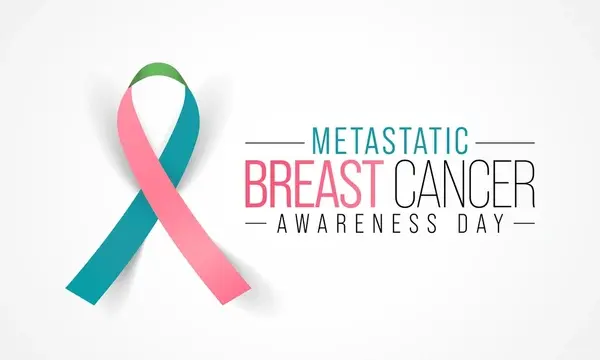Understanding Metastatic Breast Cancer: A Comprehensive Overview
- Angela Inspires

- Oct 13, 2024
- 2 min read

Today, Sunday October, 13 is Metastatic breast cancer (MBC) awareness day. MBC is often a daunting diagnosis, both for patients and their loved ones. It occurs when cancer cells from the breast spread to other parts of the body, such as the bones, liver, lungs, or brain. While this stage of breast cancer is not curable, it is treatable, and ongoing research is improving outcomes for many.
What You Need to Know About MBC
Diagnosis and Staging:
MBC is typically diagnosed after an initial breast cancer treatment, though in some cases, it can be the first diagnosis. Staging tests such as imaging scans and biopsies help determine the extent of the disease.
Symptoms:
Symptoms can vary widely depending on where the cancer has spread. Common signs include persistent pain, unexplained weight loss, fatigue, and changes in appetite. It’s crucial to communicate any new symptoms to healthcare providers promptly.
Treatment Options:
Treatments for MBC may include hormone therapy, targeted therapy, chemotherapy, and immunotherapy. The choice of treatment depends on various factors, including hormone receptor status and the specific locations of metastasis. New therapies and clinical trials are continually being developed, offering hope for better management of the disease.
Living with MBC:
Quality of life is a significant focus for those living with MBC. Support from healthcare teams, mental health professionals, and support groups can make a significant difference. Embracing a holistic approach that includes physical, emotional, and social well-being is essential.
Advocacy and Research:
Awareness and funding for metastatic breast cancer research are critical. Advocacy groups work tirelessly to raise funds and promote education, driving innovation in treatment options and patient support.
Stories of Hope and Resilience
Every person’s journey with MBC is unique. Sharing personal stories can empower others facing similar challenges. Whether it’s celebrating treatment milestones, coping strategies, or the strength found in community, these narratives remind us of the resilience of the human spirit.
Conclusion
While a diagnosis of metastatic breast cancer can feel overwhelming, understanding the disease and available resources can help navigate the journey. With ongoing advancements in research and treatment, there is hope for improved outcomes and a supportive community ready to stand by those affected. By sharing knowledge, experiences, and hope, we can continue to fight against MBC together.
Thanks for reading,
Sincerely,
Angela




Comments